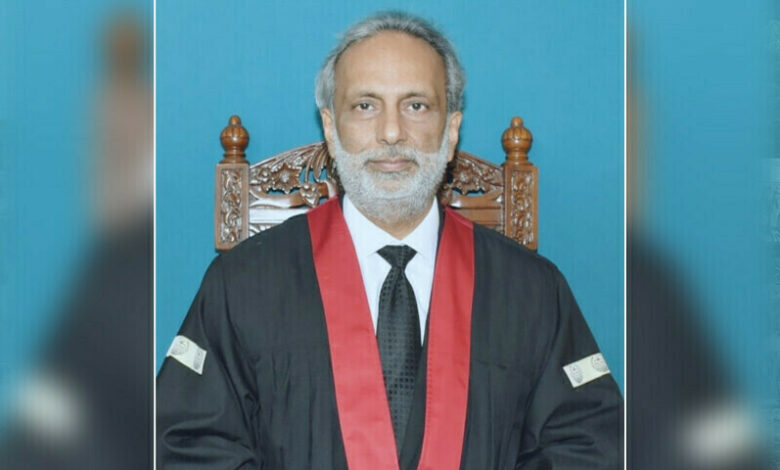LHC grills state counsel for lack of knowledge on internet disruptions – Pakistan


The Lahore High Court’s (LHC) Justice Shakil Ahmad grilled the state counsel on Friday for his lack of “knowledge” and “seriousness” about recent internet disruptions across the country.
Major online platforms such as Facebook and WhatsApp have been hit hard since last week with users reporting slowdowns and difficulties in accessing messaging and social media applications.
After months of speculation about the installation of a so-called ‘firewall’ that could be leading to internet disruptions, the country’s IT minister finally confirmed a day ago that the government was indeed upgrading its “web management system” to cope with cyber security threats.
Minister of State for IT Shaza Fatima Khawaja has said the government had sought a report from the Pakistan Telecommunications Authority (PTA) and other institutions over the internet disruption. Meanwhile, PTA officials told a Senate committee that the telecom regulator was “assessing the issue” and the IT ministry would be in a better position to provide an overview in two weeks once the assessment is completed.
The Pakistan Software Houses Association (P@SHA) has warned that the country’s economy could lose up to $300 million due to the internet disruptions
Justice Ahmad took up a petition today filed a day ago by Advocate Muhammad Nadeem, a Lahore resident.
At the outset of the hearing, the judge ordered that the federal government’s counsel appear before the court by 12pm after consulting the relevant authorities.
When the hearing resumed, state counsel Rana Nauman appeared before the court and requested that the government be given some time to submit a “detailed report on the internet outages”.
“We will have to ask the PTA why the internet is slow [and] what has happened,” the counsel contended.
At this, Justice Ahmad observed: “This is a matter of public interest and your seriousness is such that you do not even have adequate information [about this issue].”
The judge then said he was serving his verdict on the matter.
Reiterating that the petition pertained to public interest, Justice Ahmad said he would issue appropriate directives on it.
Petition
The petition, a copy of which is available with Dawn.com, was filed on Thursday by Advocate Muhammad Nadeem.
The federal government — through the law and information ministries as well as the cabinet division secretary — along with the PTA chairman were named as respondents in the case.
It requested that the “action of the federal government (internet shutdowns) be declared to be unconstitutional and unlawful being inconsistent” with various articles of the Constitution.
According to the petition, the actions were in violation of Articles 9 (security of person), 18 (freedom of trade, business or profession), 19 (freedom of speech, etc), 19A (right to information) and 25A (equality of citizens).
It further urged the court to order the federal government to “ensure uninterrupted internet services throughout” the country.
“If internet shutdowns in the interest of national security and in the wake of law and order, same is to be intimated to public at large prior to closure citing reasons for closer and providing time frame as to duration of internet closure,” the petition read.
It argued that “by blocking, filtering, or shutting down these services, the government is eroding civic space; fostering a climate of economic uncertainty and disrupting access to healthcare, online business, emergency services and financial services.”
“Apart from the general public, hundreds, if not thousands, of companies have also been affected. Ride-hailing companies like Bykea, Careem and InDrive have taken the brunt, as their users — both drivers and passengers — need mobile data on the go,” the petition argued.
“Should these shutdowns continue even if they are limited to certain social media platforms they are likely to have far-reaching implications for investor confidence, export growth, and the country’s reputation in the global technology market,” it warned.
Source link